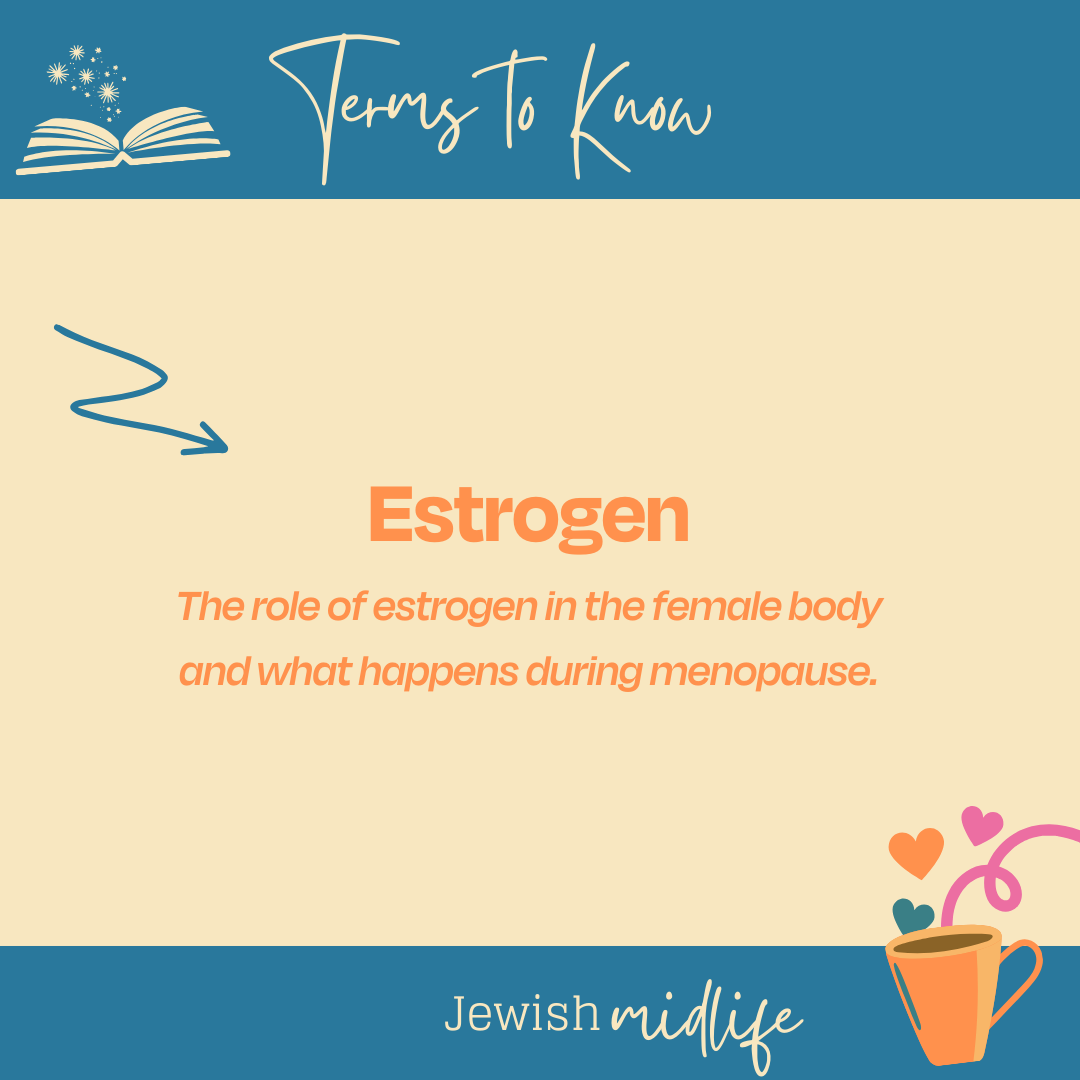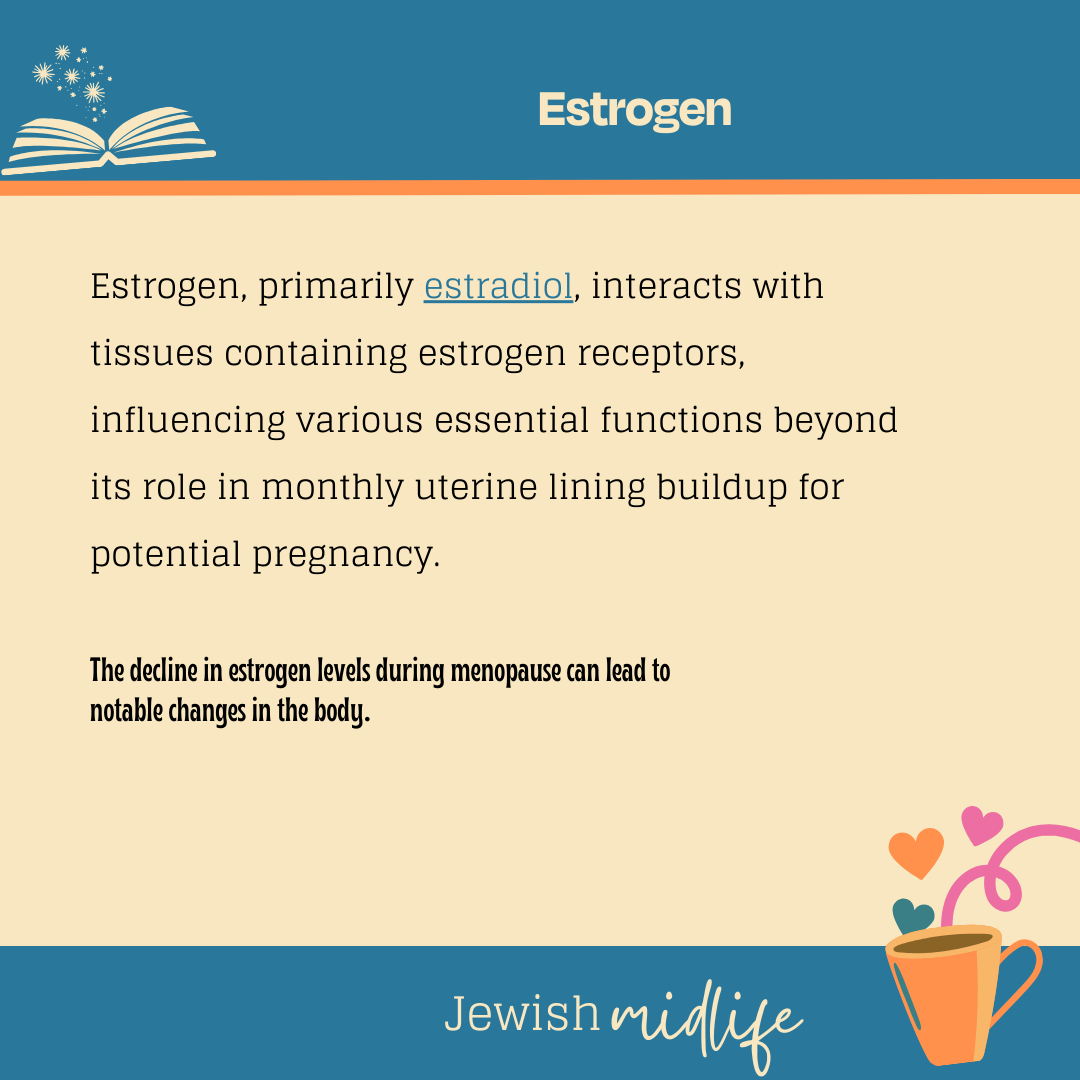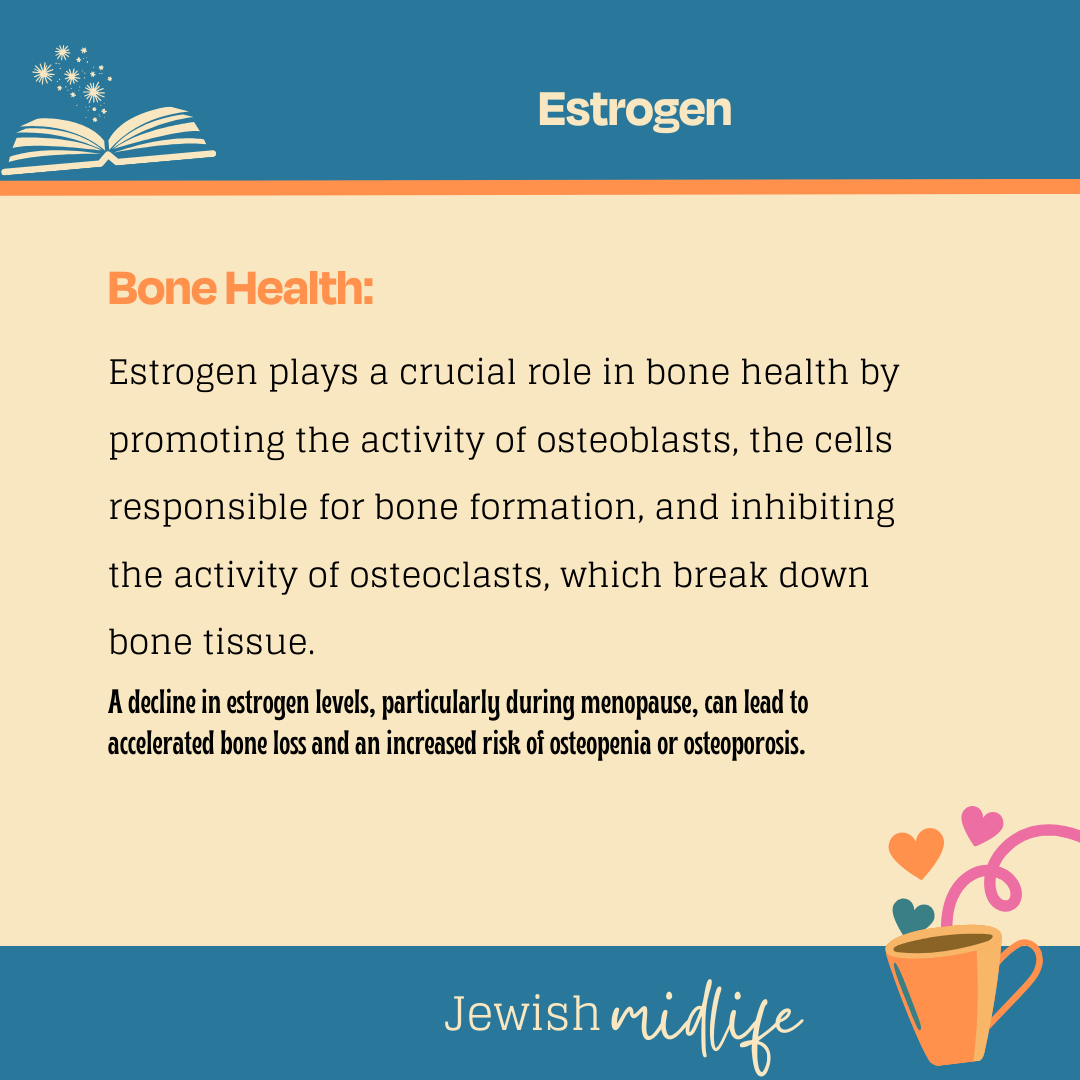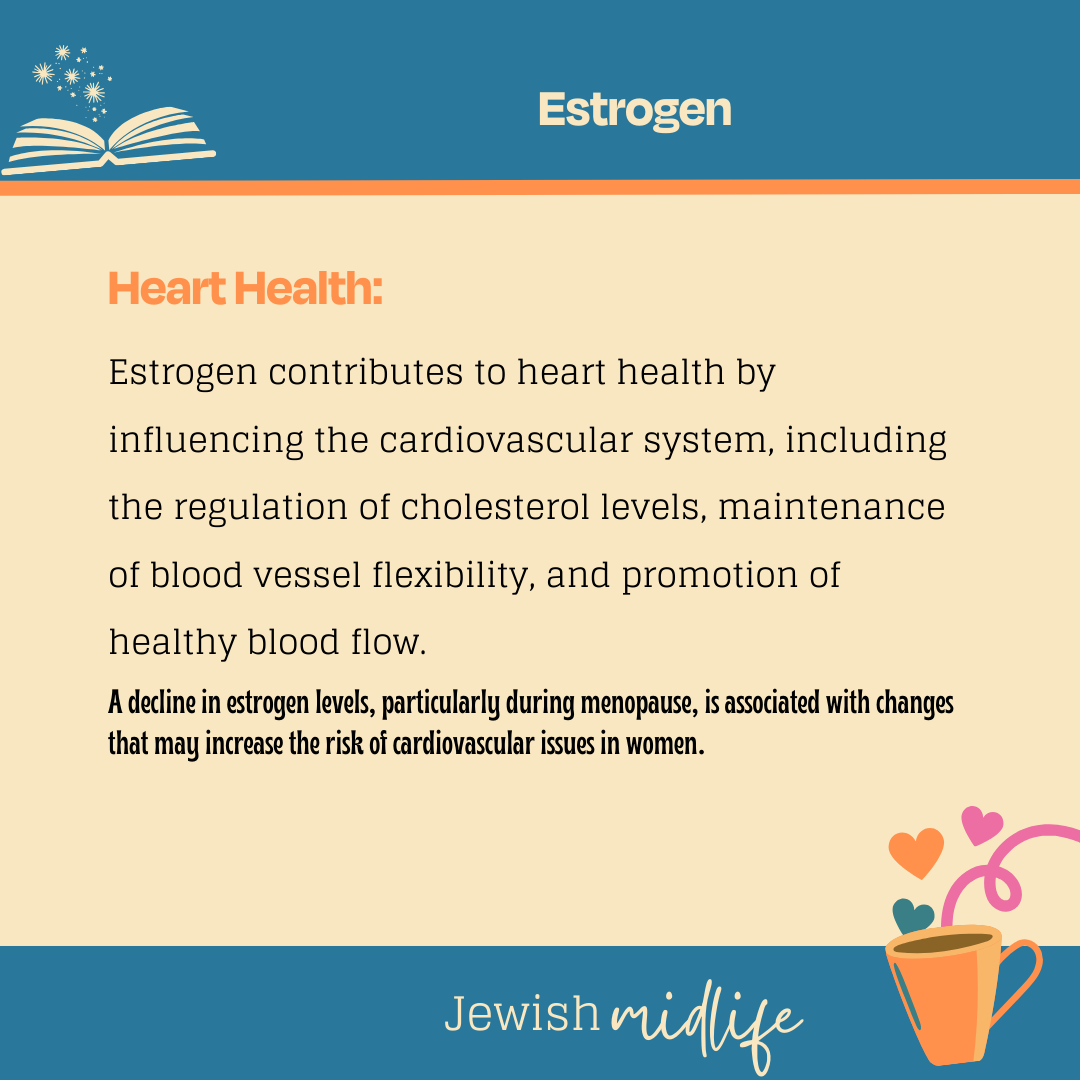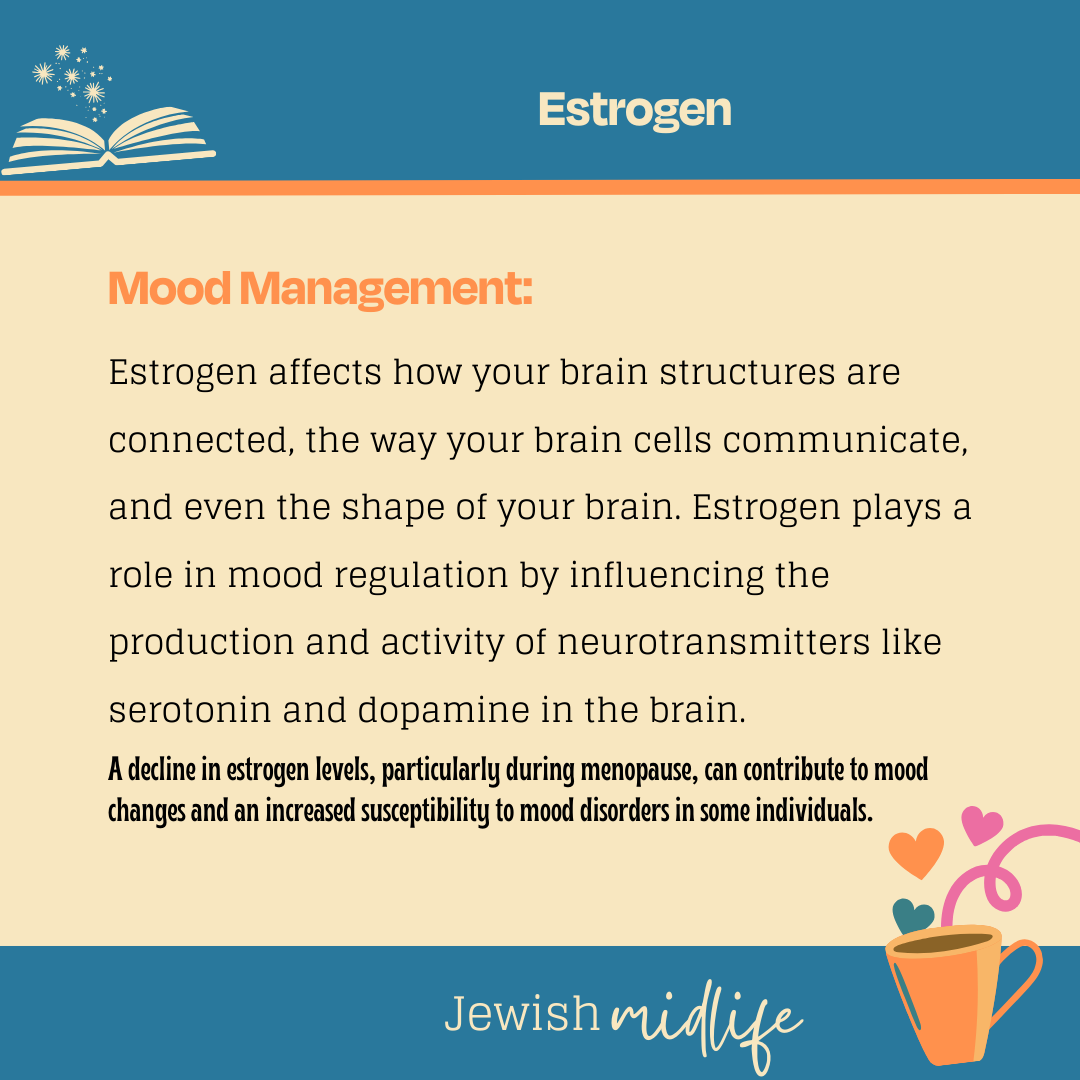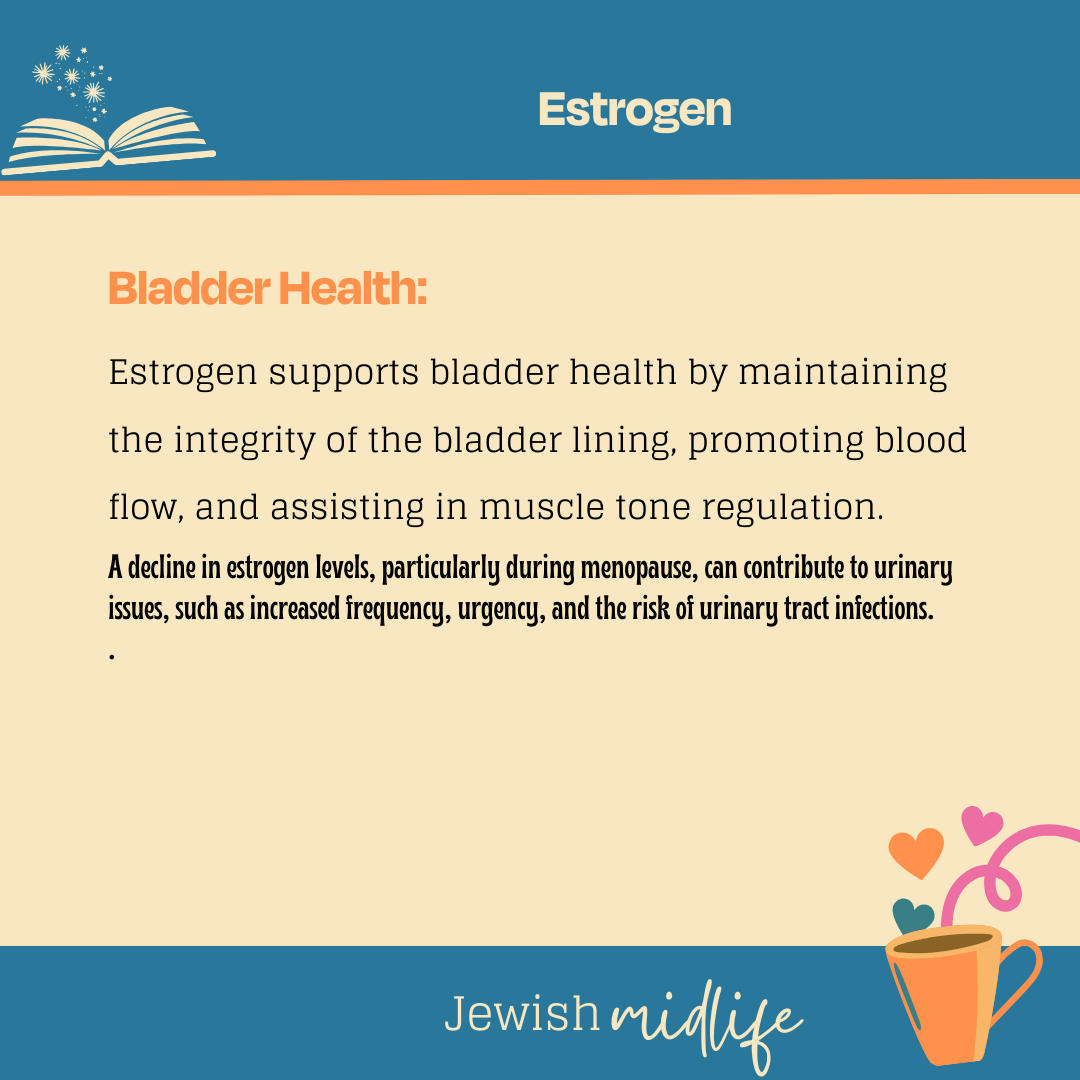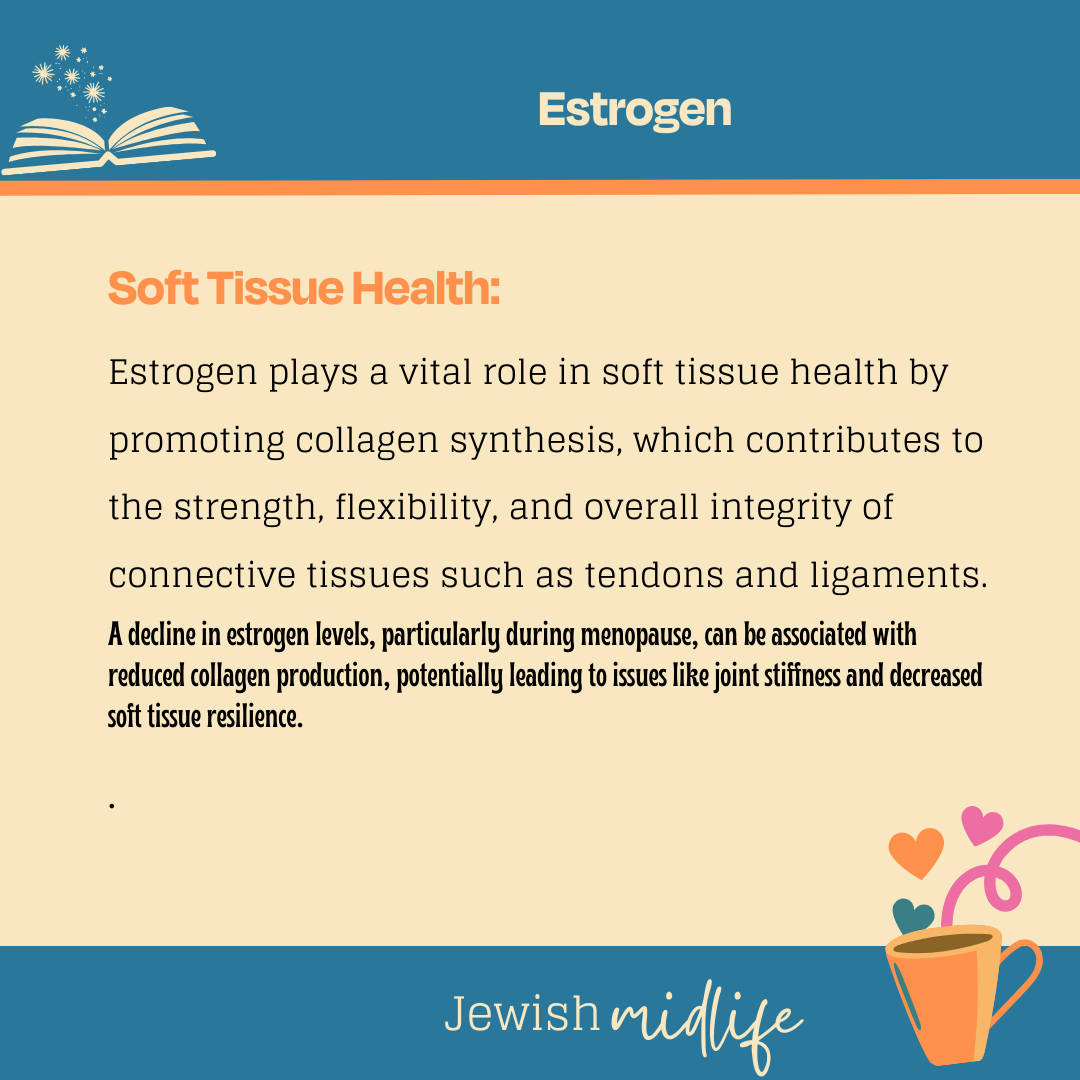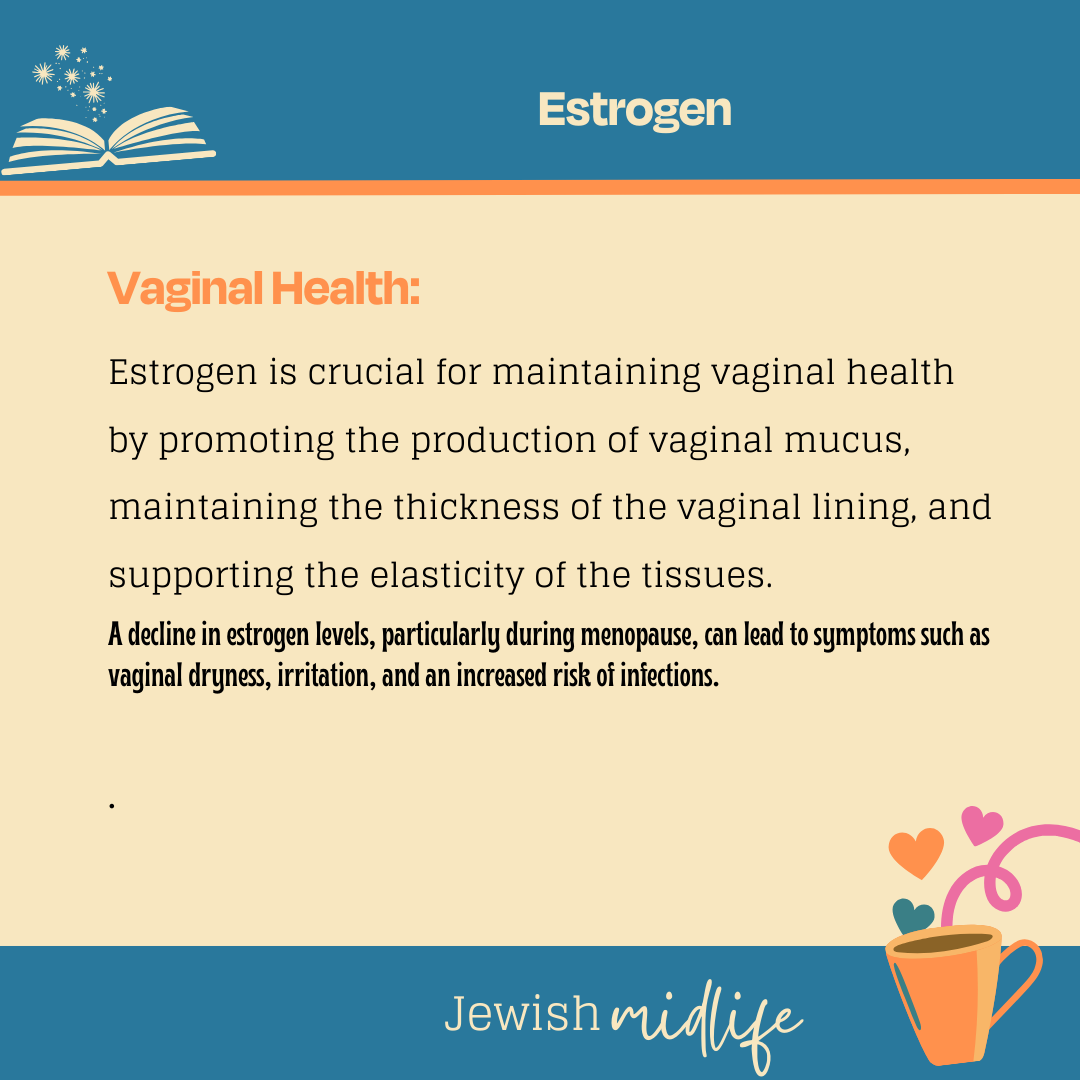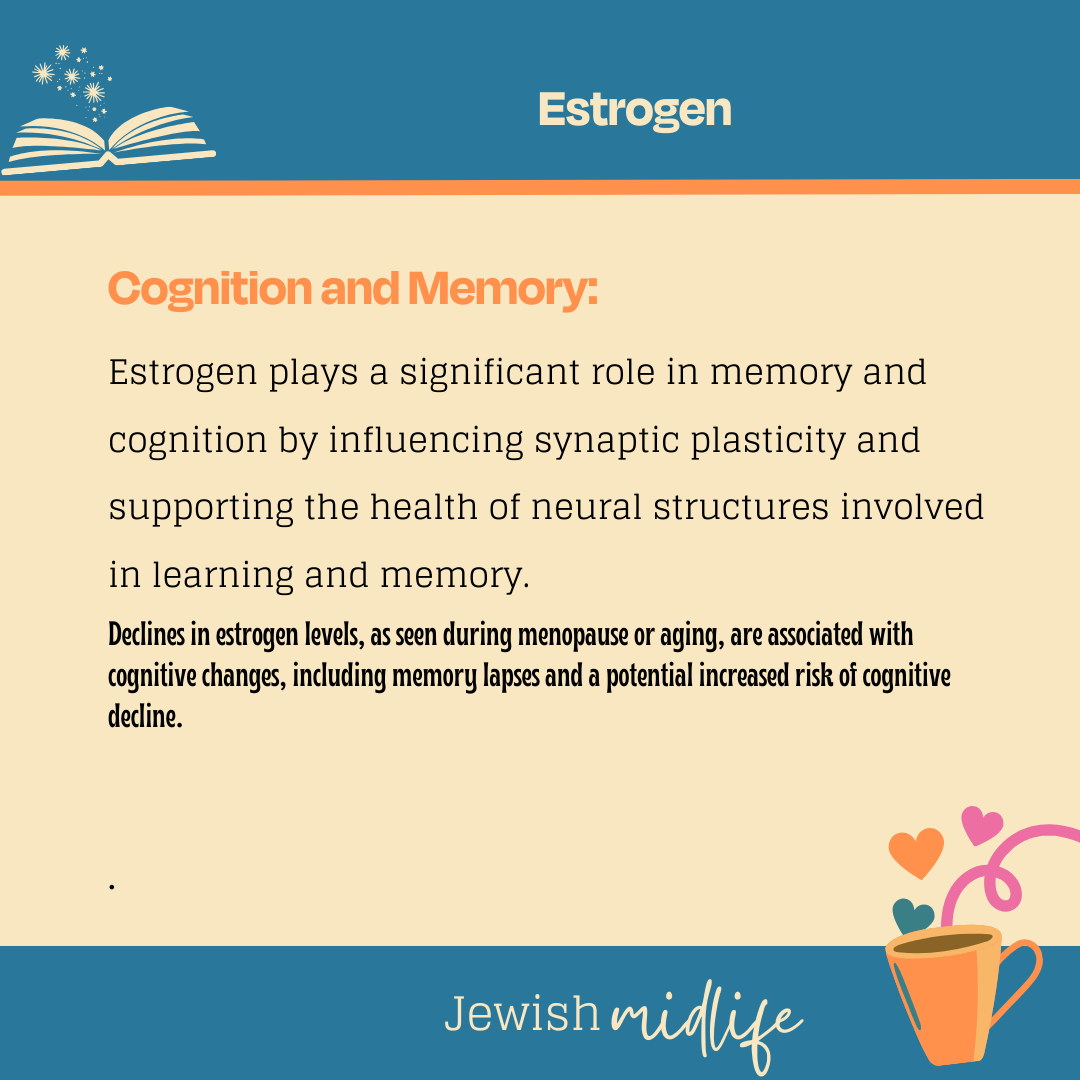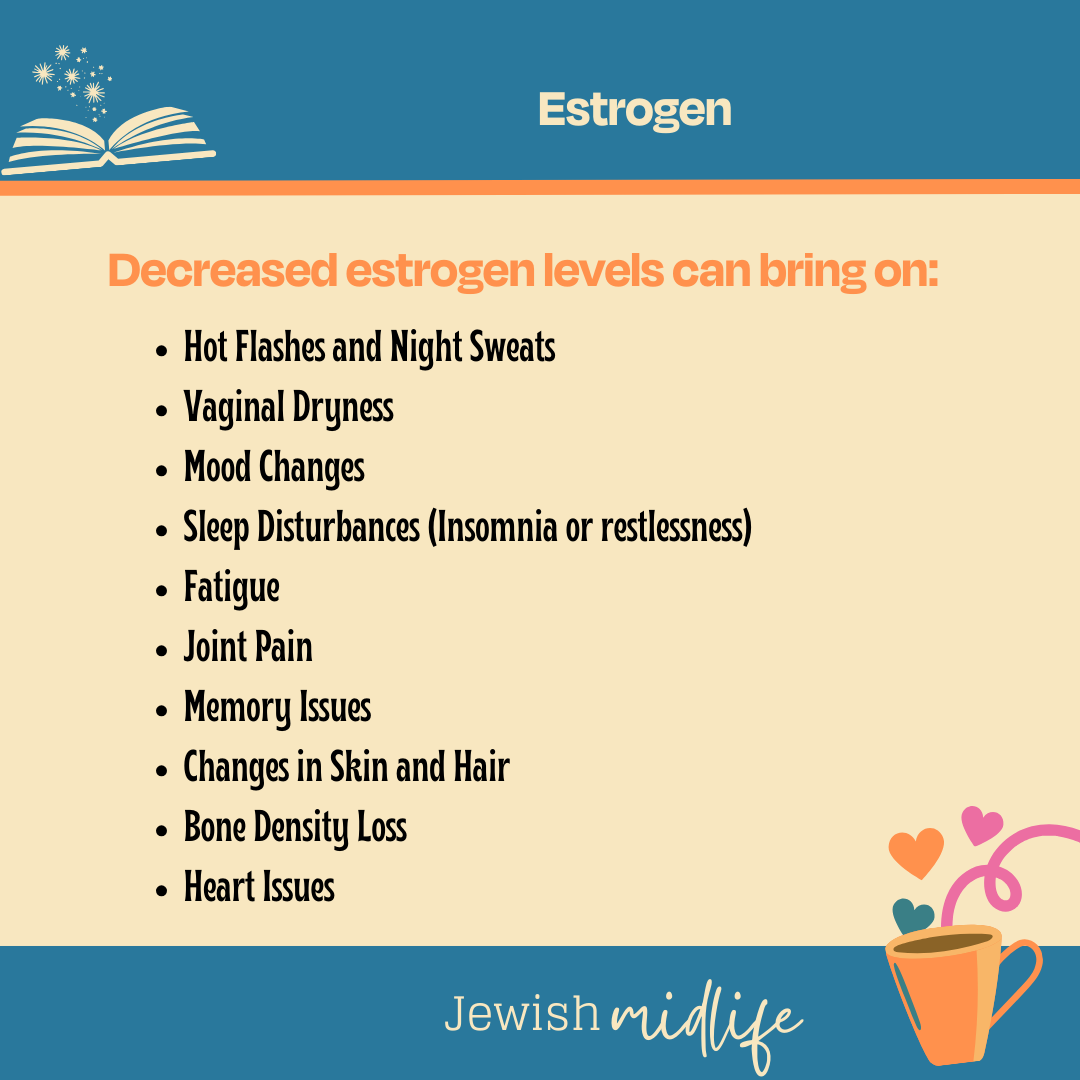Estrogen, primarily estradiol, interacts with tissues containing estrogen receptors, influencing various essential functions beyond its role in monthly uterine lining buildup for potential pregnancy. The decline in estrogen levels during menopause can lead to notable changes in the body.
Bone Health: Estrogen plays a crucial role in bone health by promoting the activity of osteoblasts, the cells responsible for bone formation, and inhibiting the activity of osteoclasts, which break down bone tissue. A decline in estrogen levels, particularly during menopause, can lead to accelerated bone loss and an increased risk of osteopenia or osteoporosis.
Heart Health: Estrogen contributes to heart health by influencing the cardiovascular system, including the regulation of cholesterol levels, maintenance of blood vessel flexibility, and promotion of healthy blood flow. A decline in estrogen levels, particularly during menopause, is associated with changes that may increase the risk of cardiovascular issues in women.
Mood Management: Estrogen affects how your brain structures are connected, the way your brain cells communicate, and even the shape of your brain. Estrogen plays a role in mood regulation by influencing the production and activity of neurotransmitters like serotonin and dopamine in the brain. A decline in estrogen levels, particularly during menopause, can contribute to mood changes and an increased susceptibility to mood disorders in some individuals.
Skin Health: Estrogen plays a crucial role in maintaining skin health by promoting collagen production, maintaining skin thickness and elasticity, and aiding in wound healing. A decline in estrogen levels, particularly during menopause, can contribute to skin aging, decreased hydration, and increased vulnerability to wrinkles.
Bladder Health: Estrogen supports bladder health by maintaining the integrity of the bladder lining, promoting blood flow, and assisting in muscle tone regulation. A decline in estrogen levels, particularly during menopause, can contribute to urinary issues, such as increased frequency, urgency, and the risk of urinary tract infections.
Soft Tissue Health: Estrogen plays a vital role in soft tissue health by promoting collagen synthesis, which contributes to the strength, flexibility, and overall integrity of connective tissues such as tendons and ligaments. A decline in estrogen levels, particularly during menopause, can be associated with reduced collagen production, potentially leading to issues like joint stiffness and decreased soft tissue resilience.
Vaginal Health: Estrogen is crucial for maintaining vaginal health by promoting the production of vaginal mucus, maintaining the thickness of the vaginal lining, and supporting the elasticity of the tissues. A decline in estrogen levels, particularly during menopause, can lead to symptoms such as vaginal dryness, irritation, and an increased risk of infections.
Hair Health: Estrogen contributes to hair health by promoting hair growth and maintaining the thickness and texture of the hair. Changes in estrogen levels, such as those occurring during menopause (or other hormonal fluctuations), can lead to hair thinning or loss in some individuals.
Cognition and Memory: Estrogen plays a significant role in memory and cognition by influencing synaptic plasticity and supporting the health of neural structures involved in learning and memory. Declines in estrogen levels, as seen during menopause or aging, are associated with cognitive changes, including memory lapses and a potential increased risk of cognitive decline.
Mucus membranes: Estrogen contributes to the health of mucous membranes by promoting the production of mucus, which helps to maintain the lubrication and protective barrier in various tissues, including the respiratory and digestive tracts. Declines in estrogen levels, as seen during menopause, can lead to alterations in mucous membrane function, potentially causing dryness and increased susceptibility to infections.
Decreased estrogen levels can bring on:
- Hot Flashes and Night Sweats
- Vaginal Dryness
- Mood Changes
- Sleep Disturbances (Insomnia or restlessness)
- Fatigue
- Joint Pain
- Memory Issues
- Changes in Skin and Hair
- Bone Density Loss
- Heart Issues
.
.

